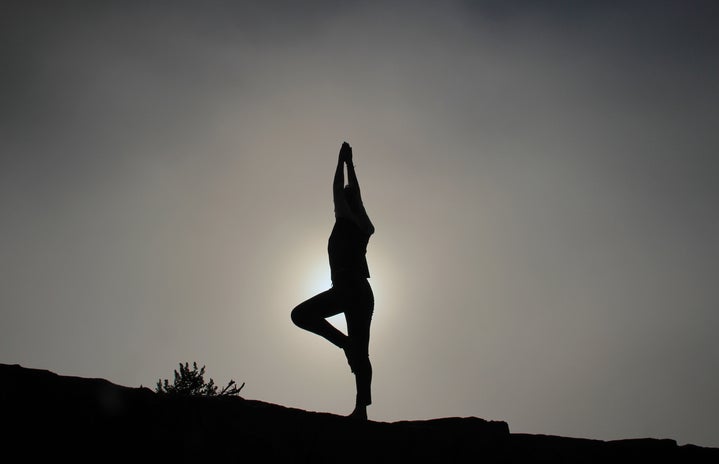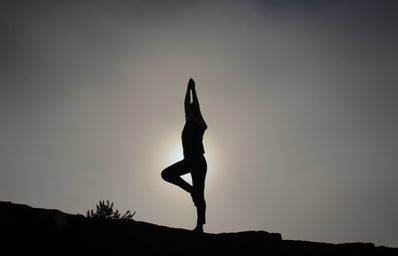Do you ever wake up feeling like a wheelbarrow full of rocks was dumped on you in your sleep? When you’re sick and still have places to be and people to see, you don’t have time to be weighed down by metaphorical rocks!
I think we can unanimously agree that college is stressful. Staying on top of school work, maintaining a social life, taking care of yourself mentally and physically and sometimes working a part-time or full-time job takes a toll on your body and mind. It is also known that stress can be a cause of physical illness. Your body needs all the nutrients and the rest (usually difficult) it can get for optimal health. Being sick is never fun and usually frustrating when you have so many items on your “to do” list. While specific medications are sometimes imperative to certain physical or mental illnesses, there are natural remedies out there worth trying. I’m not suggesting these herbal remedies are guaranteed to heal you or that they are a substitute for physician-prescribed medications, but for me and anyone who is interested in natural remedies, I have a few suggestions based off of personal experience.
Digestive & Inflammation
Turmeric is a mild spice from Southeast Asia that is excellent for inflammation. Turmeric can help with swelling of any kind, but I use it often when my joints are swollen. You can incorporate turmeric into any food or drink you make, as it has a mild, earthy taste to it. Be prepared to have whatever you’re cooking it with turn yellow, though. The pigment in turmeric leaves a prominent tint. Garlic and ginger are both excellent for the digestive system. I like to think of garlic as nature’s antibiotic because it fights off infections and cleans the intestinal tract. Ginger is great if you have an upset or nauseous stomach. I love adding ginger to my tea at night to make it spicy and warming. It makes for a cozy, winter weather drink.
Anxiety & Depression
Lemon balm and chamomile are both relievers of stress and anxiety. I personally drink chamomile tea when I’m having trouble falling asleep because it reduces insomnia by relaxing your muscles and mind. Lemon balm and anything with lemon in it rejuvenates your body and improves cognition. St. John’s wort, an herb I recently discovered, has been my saving grace. Not only is it effective in treating minor depression, but it can also be used for external uses such as healing minor skin irritations. It does have a terribly bitter taste to it, so I suggest adding honey if you chose to make St. John’s wort tea.
Skincare & Muscles
One of the most popular herbs for burns is aloe vera. If you don’t have an aloe plant, you can purchase aloe gel and apply it directly to the burn with a guaranteed cooling effect. Rosemary, one of the most versatile herbs in this article, works well for circulation, muscle/joint pain and bronchitis. Whenever I have a cold, I boil a pot of water and rosemary. After removing it from the stovetop, I put my head over the pot and breathe in the steam, letting it extract the mucus (gross, I know). If you try this at home, be careful to not ingest too much steam at once because it will burn you! Tea tree oil is great for getting rid of acne and other fungal or bacterial skin infections, though it should never be ingested.
Women’s Health
What’s worse than menstrual cramps? Not much if you ask me. A shrub by the name of black haw can be dated back to the 19th century and is still used to relieve menstrual cramps, intestinal cramps and even heavy bleeding. Fennel seeds have also been proven to be natural nausea and fatigue relievers during your period. Midwives often use this herb to relieve pain after childbirth. Though not a cure for bladder infections, cranberry can be used as preventative measures by adding acidity to urine, thus fighting off bacteria.
My preferred method of consuming herbal remedies is by making a tea out of them; however, you can also find them in capsules or essential oils. As with other types of medication, some herbal remedies should be taken with caution. If taking other medications, make sure you know the drug interactions herbal medicines may have with it. Make sure you read warning labels, especially if you are pregnant. While I endorse healing through herbal remedies, I suggest you research the effects before you try it and decide what is best for you.
Sources: Johnson, R. L., Foster, S., & Weil, A. (2014). National Geographic guide to medicinal herbs: The worlds most effective healing plants. Washington, D.C.: National Geographic.



